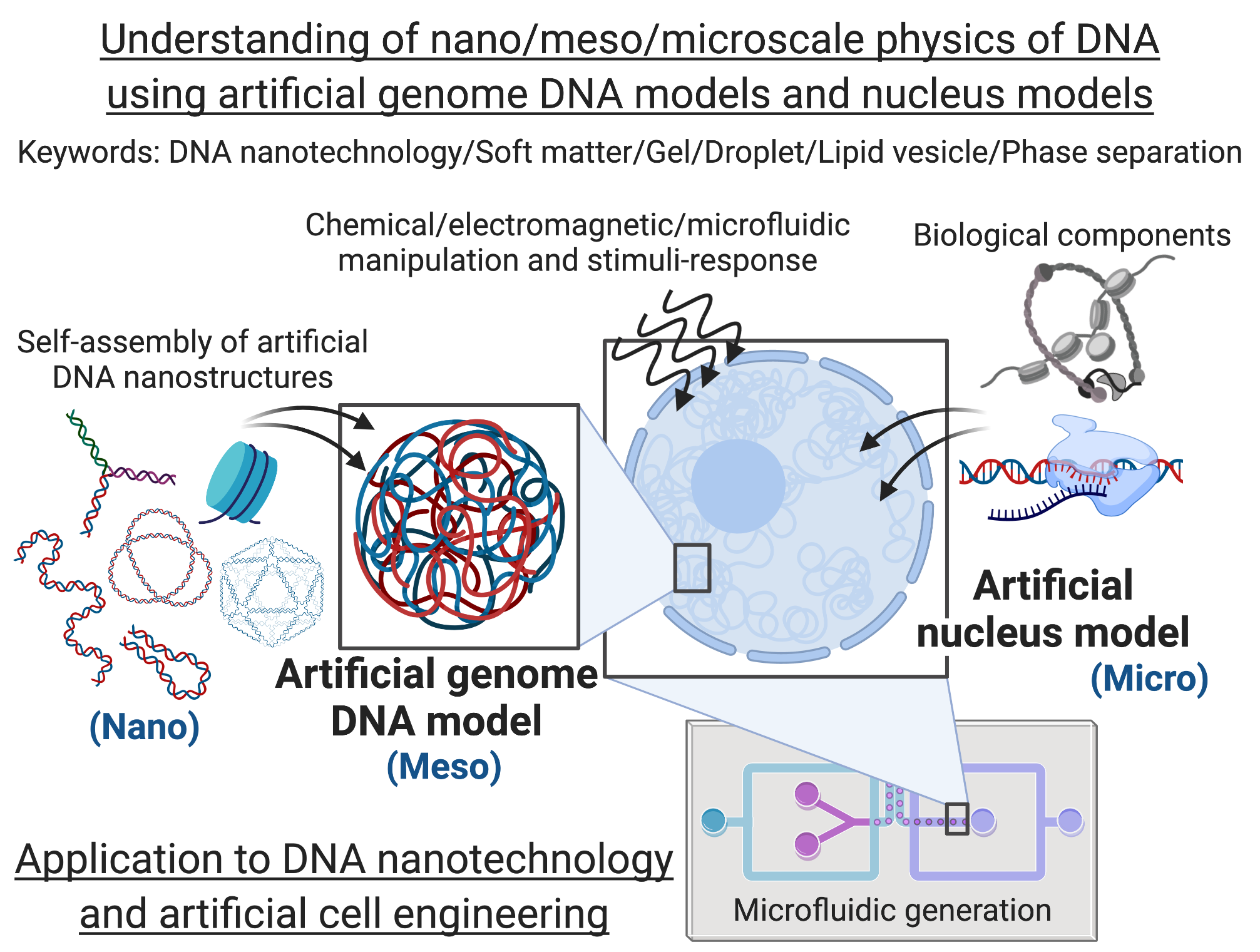A01-2 Nano-scale genome modality
DNA is a hierarchical soft matter with a rigid structure at the nanoscale and flexible macromolecular properties at the genomic DNA scale (mesoscale (hundreds of nm) to microscale (tens of micrometers)). While the nanoscale thermodynamics of DNA, which is governed by base sequences, is well known, less is known about the structural properties and dynamics of the meso- and microscale, which are important for cell biology. In this study, we will elucidate the soft matter physics principles of how DNA exhibits meso-to-microscale multimodal structure, properties, and functions (e.g., liquid-liquid phase separation, intramolecular phase separation, interfacial tension, viscoelasticity, volumetric phase transition, and non-equilibrium) of genomic DNA in the microspace of the cell nucleus scale, based on nanoscale base sequence information. To this end, we use DNA gels/droplets constructed with the self-assembly of DNA nanostructures such as DNA motifs and DNA origamis, and use microfluidically generated membrane vesicles to artificially synthesize and analyze genomic DNA models (artificial chromatin) and cell nuclear models (artificial cell nuclei). We will also apply our findings to biophysical and applied physics techniques such as artificial cell engineering and molecular robotics.

-

Masahiro Takinoue Project Leader
- Tokyo Institute of Technology, Department of Computer Science
- http://takinoue-lab.jp/en/
-

Hiroaki Suzuki Co-Project Leader
- Chuo University, Graduate School of Science and Engineering, Department of Precision Mechanics
- http://www.mech.chuo-u.ac.jp/~suzukilab/

